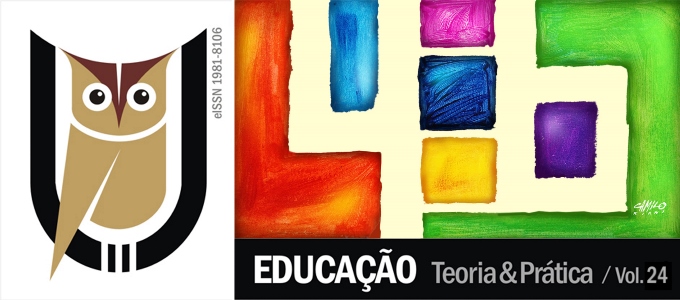Mathematics: contextualization, sociocultural and environmental limits of its application in the students’ everyday lives
DOI:
https://doi.org/10.18675/1981-8106.vol24.n46.p76-96Keywords:
Ecological Literacy. Real Context Teaching. Interdisciplinary. Mathematics. Environmental issues.Abstract
The environmental issues have been the subject of study and concern in the contemporary society. In its turn, education changes the ways of thinking and acting of the individuals through a contextualized and interdisciplinary teaching, awakening them to a critical sense. Taking this into account, this research studied specifically mathematics, which is not only the logical reasoning science but also an instrument which can be used by man to interfere in the building of a society based on his interpretation of nature in order to achieve a sustainable life. It also sought to inquire into the social and cultural limits of the introduction of the environmental practice in Mathematics teaching in order to reach what Capra (1969) calls “Ecological Literacy”. The survey was carried out with first and fourth-grade students of the Integrated Mode Courses in the Federal Institute of Education, Science and Technology of Bahia (IFBA), campus Vitoria da Conquista, during the month of December 2011. As it was a quantitative research, a questionnaire was applied and the collected data made it possible to reach results that generated proposals for changes in teaching and learning not only mathematics but also other disciplines, aiming to contribute to the development of attitudes and values concerning the human behavior.Downloads
Additional Files
Published
How to Cite
Issue
Section
License
Authors who publish in this journal agree to the following terms:
a) Authors assign copyright to the journal, with the work simultaneously licensed under the Creative Commons Attribution License that allows sharing of the work with acknowledgment of authorship and publication in this journal.
b) The policy adopted by the Editorial Committee is to assign copyright only after a period of 30 months from the date of publication of the article. After this time, authors interested in publishing the same text in another work must send a letter to the Editorial Committee requesting the release of the assignment of copyright and wait for a response.
c) This journal provides public access to all its content, since this allows greater visibility and reach of published articles and reviews. For more information on this approach, visit the Public Knowledge Project, a project that developed this system to improve the academic and public quality of research, by distributing OJS as well as other software to support the public access publication system to academic sources. The names and email addresses on this website will be used exclusively for the purposes of the journal and will not be available for other purposes. This journal provides open any other party  This work is licensed under a Creative Commons License
This work is licensed under a Creative Commons License











